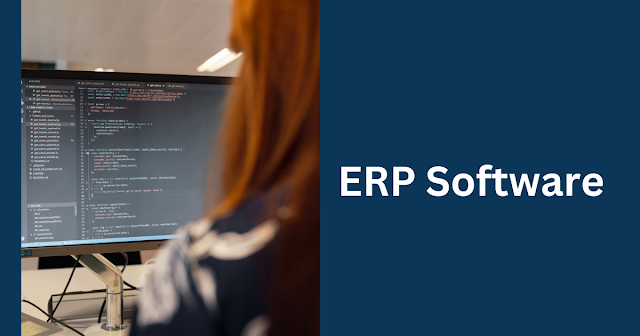Industry-Specific ERP Solutions: Meeting Unique Demands
The concept of Enterprise Resource Planning (ERP) systems has become a cornerstone for organizations seeking to streamline their operations, enhance efficiency, and make informed decisions. ERP solutions have come a long way from their inception as generic software platforms that aim to cover various aspects of business processes.
Today, industry-specific ERP solutions in Dubai have taken center stage, addressing the unique demands and challenges faced by different sectors. In this blog, we delve into the significance of industry-specific ERP solutions and how they are reshaping the way businesses operate in various sectors.
The Evolution of ERP: From Generic to Industry-Specific
Enterprise Resource Planning systems emerged in the 1960s and 70s as a response to the growing complexity of managing various business functions. These early ERP systems aimed to integrate different departments within an organization, primarily focusing on finance, human resources, and supply chain management.
However, as businesses diversified and specialized, it became clear that a one-size-fits-all ERP solution was not sufficient to address the unique requirements of different industries.
The advent of industry-specific ERP solutions marked a paradigm shift in how businesses approached their technological infrastructure. These tailored solutions recognized that what works for a manufacturing company might not be suitable for a healthcare provider or a financial institution.
The rise of cloud technology and advances in software development allowed ERP vendors to create specialized solutions that catered to the distinct needs of various industries.
Understanding the Significance of Industry-Specific ERP Solutions
Customization for Efficiency:
One of the key advantages of industry-specific ERP solutions is their ability to offer a higher level of customization. Generic ERP systems often require extensive modifications to meet industry standards, leading to complex and costly implementations.
Industry-specific solutions, on the other hand, come preconfigured with features, processes, and best practices tailored to a specific sector. This translates to quicker implementation times and less disruption to the organization's daily operations.
Compliance and Regulatory Alignment:
Different industries are subject to unique regulatory frameworks and compliance standards. Industry-specific ERP solutions are designed to adhere to these regulations from the outset. This not only helps businesses stay compliant but also reduces the risk of costly penalties and legal issues.
Enhanced Decision-Making:
In today's data-driven world, informed decision-making is paramount to success. Industry-specific ERP solutions gather, consolidate, and present relevant data in a format that is tailored to the specific needs of a particular sector. This enables executives and managers to make strategic decisions based on accurate insights, leading to improved overall performance.
Process Optimization:
Industries often have specific processes and workflows that are not adequately addressed by generic ERP systems. Industry-specific solutions are built with these unique processes in mind, resulting in streamlined operations, reduced bottlenecks, and increased efficiency across the board.
Competitive Edge:
Standing out in a competitive market requires a keen understanding of industry trends and customer demands. Industry-specific ERP solutions offer advanced analytics and reporting features that allow businesses to identify trends, adapt to market shifts, and innovate faster than their competitors.
Industry-Specific ERP Solutions in Action
Let's explore how industry-specific ERP solutions are making a significant impact in a few key sectors:
Manufacturing:
In the manufacturing industry, precision, efficiency, and timely production are crucial. Industry-specific ERP solutions help manage complex supply chains, optimize production schedules, and monitor quality control. These systems integrate everything from inventory management to shop floor control, enabling manufacturers to deliver products on time and at the highest quality.
Healthcare:
Healthcare providers face unique challenges in managing patient data, complying with medical regulations, and maintaining efficient workflows. Industry-specific ERP solutions for healthcare offer features like electronic health records (EHR) management, appointment scheduling, and billing integration, ensuring seamless operations while safeguarding patient privacy and adhering to industry regulations.
Retail and E-commerce:
The retail sector is rapidly evolving with the growth of e-commerce. Industry-specific ERP solutions provide tools to manage inventory across multiple channels, analyze consumer behavior, and forecast demand accurately. These solutions empower retailers to offer personalized experiences and quickly adapt to changing market trends.
Finance and Banking:
Financial institutions require robust solutions that ensure data security, compliance with financial regulations, and accurate reporting. Industry-specific ERP solutions designed for the finance sector offer features like risk management, portfolio analysis, and compliance monitoring, enabling banks and financial organizations to operate efficiently while minimizing risks.
Challenges and Considerations
While industry-specific ERP solutions offer a multitude of benefits, organizations should be mindful of potential challenges:
Vendor Selection:
Choosing the right ERP vendor that specializes in your industry is critical. Thorough research and due diligence are necessary to ensure the chosen solution aligns with your business's unique requirements.
Change Management:
Implementing a new ERP system, whether generic or industry-specific, often requires a change in processes and workflows. Ensuring proper training and change management strategies are in place is essential to minimize disruptions.
Scalability:
As businesses grow, their needs may evolve. Selecting an industry-specific ERP solution that can scale with your organization's growth is vital to avoiding the need for frequent system replacements.
Conclusion
In a world where industries are becoming increasingly specialized, the demand for tailored technological solutions has never been more apparent. Industry-specific ERP solutions offer a strategic advantage by addressing the distinct challenges and demands of various sectors.
From manufacturing to healthcare, retail to finance, these solutions are transforming the way businesses operate, optimizing processes, enhancing decision-making, and ultimately contributing to the success of organizations across the globe. As technology continues to evolve, the role of industry-specific ERP solutions will only become more pivotal in shaping the future of business.
.png)

%20(1).png)
Great insights on industry-specific ERP solutions! Customizing ERP for different sectors truly enhances efficiency and effectiveness eye hospital in Bangalore
ReplyDelete